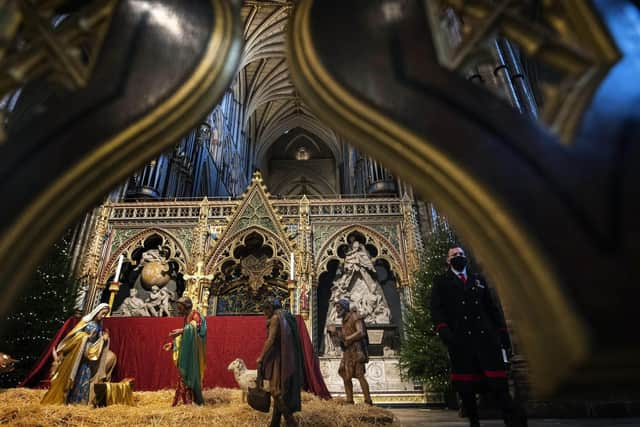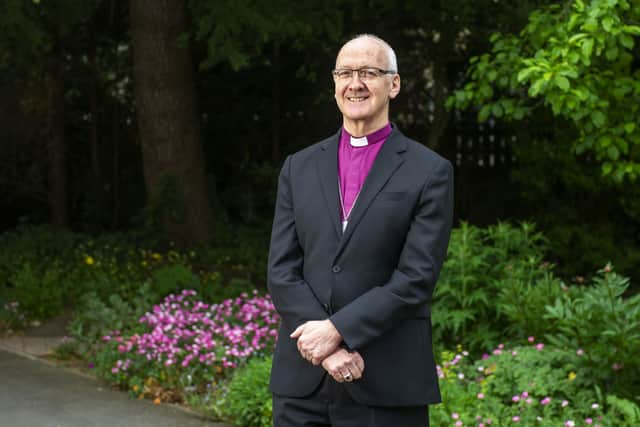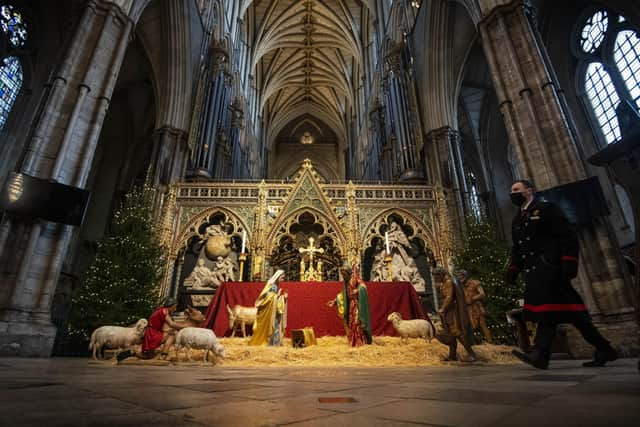Why Christmas story has even more meaning this year – Bishop of Leeds
Recently, they had their first baby (called Niamh – no idea how the Germans will pronounce it) and there is much rejoicing in the arrival in the world of this dependent little person.
And in that word ‘‘dependent’’ we get a hint of what we might expect from Christmas this year – a year in which our interdependence has been reinforced. The Covid pandemic has changed life in some way for everyone and we will be changed by the experience we have gone through.
Advertisement
Hide AdAdvertisement
Hide AdLife has been interrupted as the virus irrupted into the routines and ordinariness of ‘normality’’, and we still don’t know what we will look like as we emerge. In one sense, this is nothing new. For anyone who has suffered ill-health or the loss of loved ones, the brutality of this reality will be inescapable. The only certainty about the future is that it is always inherently uncertain.


Which is one of the reasons I am a Christian. Christian faith does not offer an escape from the uncomfortable or cruel contingencies of mortal life in a material world, but, rather, plunges us into that uncertain and fragile world. This is where Christmas comes in. Realistic, unromantic, brazen and with eyes open to all that life can throw at us.
In church or at home this Christmas, I will be digging into the remarkable story of how the world was changed for ever by an event in an obscure part of the Roman Empire more than 2,000 years ago. The significance of it only grew through the ensuing years and centuries. We have often become so familiar with the narrative that it fades into some comfort-blanket romantic memory that warms the heart without intruding on real life and hard choices. Which is a pity.
For this story offers a radical challenge to anyone who is conscious of trying to navigate a complicated world with complicated people facing complex choices and no certainty that all will end well. It is the story of how God is more realistic than I am. Christmas tells of God’s unromantic coming – in “human dress” (as William Blake put it – into this uncertain and (often) unjust, cruel world.
Advertisement
Hide AdAdvertisement
Hide AdNo hanging around in remote, uncontaminated purity, waiting for human beings to sort themselves out; rather, God opting into the messiness of the material world which brings us such glory and agony, pain and joy. No self-exemption.


This is important. Christian faith offers no escape. Like the baby Jesus himself, born in inauspicious circumstances, growing up meant facing hard choices, making hard decisions, living through undeserved or unfair struggle, enduring loss and suffering.
Yet this was described as bringing light into the world – light that the darkness cannot extinguish (as John’s Gospel puts it). No denying the darkness, its power or reality, but a defiant resistance to its ultimacy. Just read on in the gospel story and see what happened.
At the start I mentioned little Niamh, born just a few weeks ago in Germany. And I used the word ‘‘dependent’’. Perhaps the defining characteristic of a baby is its utter dependence on those who love and care for it. A baby has no power, no claims, no negotiating demands. A baby has no shame in being totally dependent. But, dependence is sometimes seen in our society as a dirty word.
Advertisement
Hide AdAdvertisement
Hide AdOne thing we have learned through the pandemic is that we are all dependent on each other. I depend on a complex network of science, business, industry, finance, politics and social organisations in order to live and work – and for any vaccine to be administered across communities. If I become unwell, I depend on doctors, nurses and pharmacists to help me survive or die well. If I have to isolate, I need other people to provide food and moral support.


In other words, we discover anew that “no man is an island, entire of itself” (as poet John Donne put it). We need each other. As Jesus grew he did so as an interdependent person in a society of mutual obligation and support. If, as Christians believe, Jesus is God incarnate, then this submission to interdependence becomes powerfully real. It suggests that Christmas is God’s invitation to everyone to get stuck into the world, loving our neighbours, serving our communities, giving up our lives for the sake of others.
This Christmas will be different. But the invitation remains the same. To open our mind to a different way of being, illuminated by the light who is born into our world as one of us, offering a different way of being together.
The Right Reverend Nick Baines is the Bishop of Leeds.
Support The Yorkshire Post and become a subscriber today. Your subscription will help us to continue to bring quality news to the people of Yorkshire. In return, you’ll see fewer ads on site, get free access to our app and receive exclusive members-only offers. Click here to subscribe.
Comment Guidelines
National World encourages reader discussion on our stories. User feedback, insights and back-and-forth exchanges add a rich layer of context to reporting. Please review our Community Guidelines before commenting.